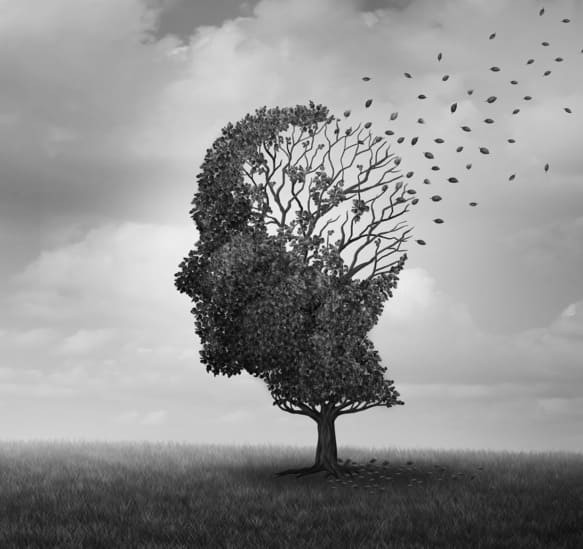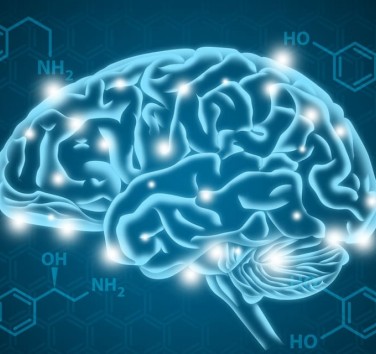What is cannabidiol (CBD)?
Cannabidiol or CBD is one of the cannabinoids identified in cannabis. Once consumed, it acts on the body's receptors just like another better known cannabinoid, Tetrahydrocannabinol or THC. Unlike THC, CBD produces a relaxing effect but has no psychoactive effects and is even considered to have therapeutic virtues thanks to its numerous properties.
The therapeutic virtues of CBD
Research is advancing in this field, and every year, new scientific studies are discovered that confirm the therapeutic virtues of CBD on many symptoms. It is considered to have anticonvulsant, antipsychotic, anti-inflammatory, antioxidant and antidepressant effects. In particular, it is known to have very encouraging effects on certain severe forms of epilepsy and on diseases such as multiple sclerosis, Parkinson's or fibromyalgia.
It should be noted that each strain of cannabis brings a different concentration of cannabinoids such as CBD or THC and therefore different benefits
Is CBD legal in France?
Currently in France, among all the existing forms of cannabis, only certain types of CBD which are considered to be forms of light cannabisare legal and can be purchased on online shops such as 321 CBD. Indeed, containing less than 0.2% THC (legal limit of THC in cannabis products in France), it has no psychotic effect and offers a beneficial experience to its users.
Side effects of CBD
The side effects of CBD are rare and depend on the individual who suffers them. Some effects include nausea, dry mouth and headaches that often subside within the first two weeks.
What is Alzheimer's disease?
Alzheimer's disease is the most common cause of dementia. It affects memory, thinking, behaviour and other cognitive abilities severely enough to interfere with daily life. Alzheimer's disease accounts for 60-80% of dementia cases.
Aging does not automatically lead to dementia, including Alzheimer's, however, people with dementia tend to be older. The average age of patients developing Alzheimer's disease is around 65 years. It is estimated that 20% of people over the age of 80 have Alzheimer's disease.
.jpeg)
The symptoms of Alzheimer's disease
Alzheimer's disease is a progressive disease that gets worse over time. The symptoms of dementia progressively worsen over a number of years. In its early stages, memory loss is mild, but in the later stages of the disease, patients lose the ability to carry on a conversation and respond to their environment
Some signs of memory loss in Alzheimer's disease include
-
Repeating sentences without reason
-
Forgetting important conversations, appointments or events
-
Forgetting objects regularly, finding them in illogical places
-
Getting lost in familiar places
-
Forgetting names of family members and everyday objects
-
Having difficulty finding the right words to identify objects, express thoughts or participate in conversations
These symptoms worsen over time and become more and more present.
Here are also some behavioural symptoms in people with Alzheimer's disease:
-
Depression
-
Apathy
-
Social withdrawal
-
Mood swings
-
Distrust of others
-
Irritability and aggression
-
Changes in sleep patterns
-
Loss of motivation
-
Delusions
These symptoms also worsen as the disease progresses. On average, a person with Alzheimer's disease lives 4 to 8 years after diagnosis, but may live up to 20 years, depending on other factors.
The causes of Alzheimer's disease
The exact causes of Alzheimer's disease are not fully explained by the medical profession. One theory is that the malfunctioning of brain proteins disrupts the work of brain cells (neurons) and triggers a series of toxic events
As a result, neurons are damaged, lose their connections to each other and eventually die, causing problems in the most basic cognitive functions such as memory, thinking and behaviour.
A combination of genetic factors is also at play in the causes of dementia. More recently, the lifestyle and environment of patients has been studied and found to affect the cognitive functions of the brain over time.
Existing treatments for Alzheimer's disease
Natural treatments
Alzheimer's disease is not a preventable or curable disease. For this reason, there is no treatment available for Alzheimer's patients. However, doctors do have recommendations on how to avoid getting sick or delay the onset of Alzheimer's disease
The first step is to make lifestyle changes to reduce the risk. During the course of one's life, it is recommended to keep one's cognitive functions active, to have an active life, but also to have hobbies and to have a good time
A healthy diet, an active social life, regular exercise and good habits to reduce the risk of cardiovascular disease can also reduce the risk of developing Alzheimer's disease and other disorders that cause dementia
Drug treatments
As Alzheimer's disease progresses, brain cells die and the connections between cells deteriorate, causing cognitive symptoms to worsen
Although these drugs do not stop the damage to brain cells caused by Alzheimer's disease, they may help to alleviate or stabilize symptoms for a limited time by affecting certain chemicals involved in carrying messages between and among brain nerve cells
Consult a doctor for more information on drug treatments for Alzheimer's disease.
.jpeg)
How can CBD help Alzheimer's disease?
It is still difficult to determine the effects of CBD on Alzheimer's disease, however, encouraging studies prove that CBD can have therapeutic effects on cognitive abilities in general, in addition to many of the symptoms of Alzheimer's disease and dementia in general.
Improved cognitive functions
Very recently, in April 2021, the Journal of Alhzeimer's published the results of scientific research done on mice proving that the consumption of the cannabidiol molecule enhanced cognitive functions (learning, memory) in mice with Alzheimer's.
Improved behaviour
Scientific studies have been ongoing since the vast majority of caregivers found CBD to be effective in managing the behavioral symptoms of Alzheimer's patients and felt that health care professionals should offer CBD oil as part of the treatment.
Improves sleep quality
One of the most well-known natural benefits appreciated by CBD users is improved sleep. Scientific studies are definite on this subject, Alzheimer's patients can benefit from CBD to sleep better, without any side effects.
Reduce depression and psychotic disorders
People with Alzheimer's disease are prone to anxiety disorders that can lead to depression and even episodes of psychosis, especially if patients are not well accompanied and isolated from social events. Indeed, it is estimated that 50% of patients suffer from this. CBD can reduce these disorders due to its anti-inflammatory, pain-relieving and soothing effects.
Verdict: Is CBD effective on Alzheimer's disease?
Yes, CBD makes a real positive difference to Alzheimer's patients, especially in terms of its symptoms. As there are no concrete treatments to stop or cure the disease to date, the only useful possibility today is to reduce the symptoms of the disease while improving the quality of life of those affected. CBD can be an important ally in this respect and is attracting more and more attention from medical professionals.
Caution: Alzheimer's patients should not, however, self-administer CBD products alongside other medical treatment. It is highly recommended to buy quality products and to consult your doctor beforehand in order to define the dosage.
More information about the products on the 321 CBD e-shop.













